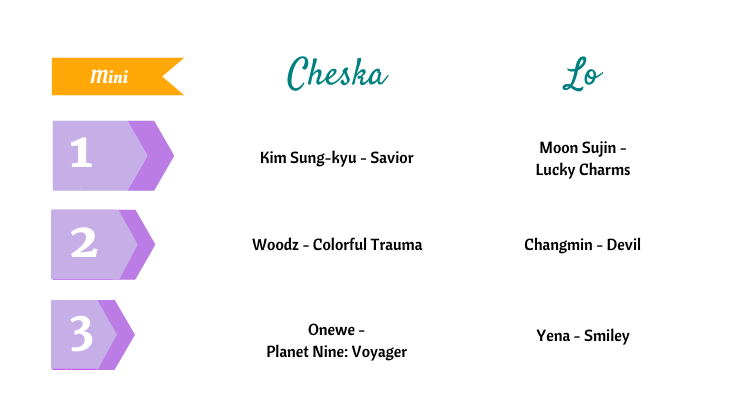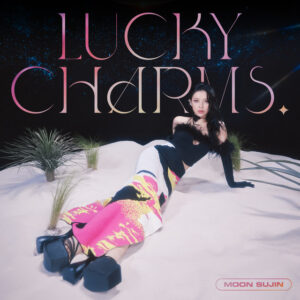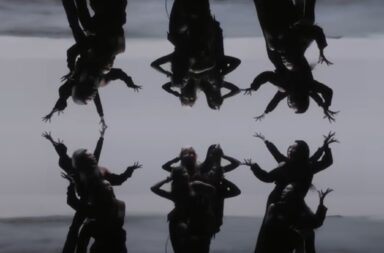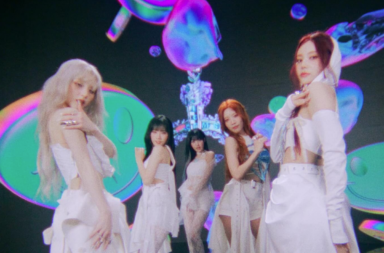Seoulbeats is run by fans and not-for-profit. As we celebrate our 14th anniversary this July, we are running a fundraiser. If you like our content, please consider supporting us at ko-fi.com/seoulbeats!
It’s already been half of the year and we are treated to a smorgasbord of mini albums with musical tastes suited for every listener, with rock and pop-punk revival making their way to K-pop. Cheska and Lo share their thoughts on some of the best mini albums this year so far!

Lo: I have to say, 2022 has gotten off to a good start, musically speaking. The terrifying onslaught of the last couple of years has faded, leaving some very positive trends in its wake. Not only has my wish been granted and the multi-part epic titles that have no business being linked have mostly vanished; 2022 has seen a surge in organic instrumentation and interest in retro genres outside of the typical pop sounds. Mostly, though, there was just a lot of good music. This was the most pleasant musical binge I’ve ever had, and one of the hardest lists to narrow down. Two of your picks were close contenders for me.
Cheska: I definitely agree. There’s been a lot of good music in the first half of 2022—the musical diversity is apparent in our lists. Speaking of organic instrumentation, I noticed there’s been a resurgence of underlying rock or punk influences in many songs nowadays. It brings a wave of nostalgia from the early 2000s, which I admit, heavily determined my picks. What made you nail down your top three?
Lo: There are things I always consider when listening to any music: the musicality, the lyricism, the tone–I have a weakness for sardonic or sarcastic delivery. But the defining factor is inevitably the execution. I will always consider a simple project done flawlessly better than a more ambitious one that fails to accomplish its goals. Case in point: Lucky Charms by Moon Sujin.

She may have debuted as a rapper, but R&B is absolutely Sujin’s calling, especially as she takes her cues from the 70s than the modern era. Soft, lush, and bright, Lucky Charms includes influences from funk and disco alongside R&B, and uses her contralto range well, going for lower notes rather than straining her voice. And in the grand contralto tradition, Sujin is seductive as hell. As she spins her tales of woe, Lucky Charms telling tales of her unluck in love, Sujin seems to be attempting to coax the entire audience into her bed, and it works. Breathy, pleading, lonely, desperate, burned out, or pissed off, Sujin is like a siren, entrancing the listener to come closer and ease her pain for just a moment.
There is not a single element of Lucky Charms that can be improved. The music is fairly standard, yet it’s perfectly arranged to flatter and support Sujin’s vocals, the layering gives plenty of space, and each track gets just enough flair, such as the guitar on “Sweetest Love” or the disco synths of “Out”, to make it memorable. The lyrics could be sharper, but her point is always clear and cutting, such as in “Right Back” when she blows off someone interested in her but expects her to wait for “better timing”. The post-production work is excellent, with crisp, clear audio that reinforces Sujins simple yet devastating delivery. Lucky Charms is so immaculate that I could not in good conscience rank it lower than first, and I don’t even like R&B.
Good execution can make me love anything. What about you? What put Savior on top of your list?
Cheska: I always have a soft spot for Kim Sung-kyu’s music, so when he came back with Savior, it was immediately “love at first listen” for me. But I have to admit, I had my reservations. It’s his return to the music scene after exiting Woollim Entertainment and his first album without NELL’s Kim Jong-wan. Still, his influence is still in this album, but Savior seems to be Sung-kyu’s foray to fully command music that is uniquely himself.

The title track, Savior, fits any of Sung-kyu’s previous albums, which reminds us of his signature soft rock many of us have come to love. But the rest of the tracks in the album show the breadth and depth of Sung-kyu as an artist. “My Love Will Be Yours” is a minimalist ballad that showcases Sung-kyu’s signature evocative tone. The song goes through a crescendo beginning with a piano followed by the addition of strings and drums. Then it all stops as Sung-kyu desperately sings one last line. Pleading, painful, and beautiful—not a lot of artists nowadays can deliver that.
If “My Love Will Be Yours” unveiled Sung-kyu’s vulnerability, then “I Dare You” brilliantly displayed his versatility. I wouldn’t normally associate him with EDM, but this is such a welcome treat. Amidst the riveting arrangement combining percussion and electronic beats, Sung-kyu takes us on a rollercoaster of his rarely-heard low notes in the verses to high tones in the bridge and chorus. It’s probably the most provocative I’ve heard of his vocals, and I’ll be more than welcome to listen to what else he has in store for his future solo releases.
Surprisingly, the writing team behind “I Dare You” has worked with TVXQ, wherein Changmin is part. What about Changmin’s Devil that made it land in third place?
Lo: I mentioned before that 2022 has been a great year for genre experiments, and Devil is the personal highlight of that for me. It’s a great whirlwind through a variety of overlooked sounds, mainly from the 60s and earlier. Furthermore, Devil is the kind of project that really speaks to music nerds, specifically history-of-music nerds, and I am that. There’s a cleverness that belies a clear interest in musicology, and that creates the cohesion needed for an otherwise utterly disparate project.
Each track’s title and subject reflect back the chosen genre. The opener is obvious, with Changmin paying homage to the American tradition of blues artists selling their souls at the crossroads. The jazzy “Fever” brings to mind Peggy Lee’s classic, and “Maniac” is an 80s tribute, much like other “Maniac”, though more New Wave than pop-rock. “Dirty Dancing” and its Latin roots might seem odd until one recognizes the Cuban influences and remembers the arguably better and Cuba-set sequel film Dirty Dancing: Havana Nights. The true standout, though, is “Alien”, which seems like lounge music, but is much closer to the preceding and utterly forgotten genre of space-age pop.
The result is that Devil, for the casual listener, is a slice of varied and enjoyable vintage fun. But for those inclined to overthink everything or just love music in its depth and breadth, Devil rewards them with a sense of being in on the joke. That Changmin is one of us and shares our bemusement and glee at paying homage to everything that came before him, from the respected to the weird.
Woodz’ Colorful Trauma is a stellar EP, one that came very close to making my own list. What clinched its spot for you?
Cheska: Woodz is a musical chameleon. Throw him a genre and he can make something beautiful out of it. Only Lovers Left was one of my favorite albums last year and Woodz has just done it again with Colorful Trauma.
There are two things I love the most about this album. First, it’s totally unexpected. As you said, 2022 is a year for musical experiments and I honestly did not expect Woodz to pull off a punk rock pop album. But he did and he’s amazing at it!
Second, it’s colorful, at the same time, cohesive. I could definitely hear Led Zeppelin and AC/DC influences in “Dirt on my leather” and I catch myself head-banging whenever it comes on. “Hijack” is something many boy groups try to do these days, but Woodz does so with so much finesse. “I hate you” fits 2000s pop-punk to the tee. My favorite, “Better and better”, is raw and real amidst the background of alternative rock and pop ballads. Lastly, “Hope to be like you” is sweet and sentimental, a fitting close as if Woodz has found peace after the trauma. Each track has its own color, but when mixed together, produces a wonderful concoction.
Yena’s Smiley is part of my shortlist, so I am glad to see it on your list! What are your thoughts on her EP?
Lo: I love that we apparently swapped shortlists, though, given our shared fondness for rock and pop-punk, that’s not a surprise. Smiley is another one of 2022’s pop-punk revivals, though it has a few qualities that draw a sharp line between it and others in the genre. For one, it opens with the requisite heartbreak ballad, a rarity for any work. For another, despite drawing on a genre with an unfortunately nasty anti-femininity streak, Smiley is very pink.
Yena leans hard into the pop side of pop-punk in musicality, in composition, but most importantly, in attitude. In a world that venerates artistic torment, Yena chooses happiness. Moreover, she does so with purpose. Yena is no doe-eyed ingenue who hasn’t felt pain. She’s been cheated on, dumped, and rebounded with a self-involved pretty boy; her life’s not going great. And this is why she chooses to let go and smile: because it feels better to enjoy the fleeting rushes of bliss than to wallow in misery for the sake of moral superiority. There are moments where she breaks–the bridge of “Lxxk 2 U”, the self-depreciation of “Pretty Boys”–but overall, Yena is sincere in her pursuit of smiles. It’s a very “fake it till you make it” approach, but when the EP ends with Yena having pulled it off, her happiness likely impermanent but very real, it’s hard to criticize.
In a year dominated by solo artists, you have the one group EP. I found Planet Nine: Voyager from Onewe a little slow, but it definitely has its moments. What specifically clinched its spot for you?
Cheska: I understand what you mean that Planet Nine: Voyager is slow, and I think Onewe purposefully made it that way. The album leans to being both retrospective and introspective—either as a seemingly fitting conclusion of their voyage (pun intended) in Planet Nine or a prelude to a pause as vocalist Younghoon recently announced his military enlistment.
Tears aside, punk seems to be a prevalent genre in the Korean music industry nowadays, as heard in “Montage_”, the most climactic track in the album. The song puts you in an adrenaline rush from start to finish, especially that spectacular outro from Kanghyun and Harin.
With Planet Nine: Voyager, Onewe mixes the new and familiar while successfully being cohesive. It’s a difficult balancing act, following being constantly impressed with each release. Emotional rock ballads are definitely Onewe’s forte, as we hear in “Universe_”, “Envision_”, and “Orbit_”. “Trigger_” is a welcome change of pace and “From_” traces back to the band’s busking roots. The album comes full circle, taking the listener on a voyage of who Onewe is and who they can become more.
Which mini albums impressed you so far this year? Let us know in the comments!
(YouTube [1], [2], [3]. Images via Million Market, DoubleH TNE.)


